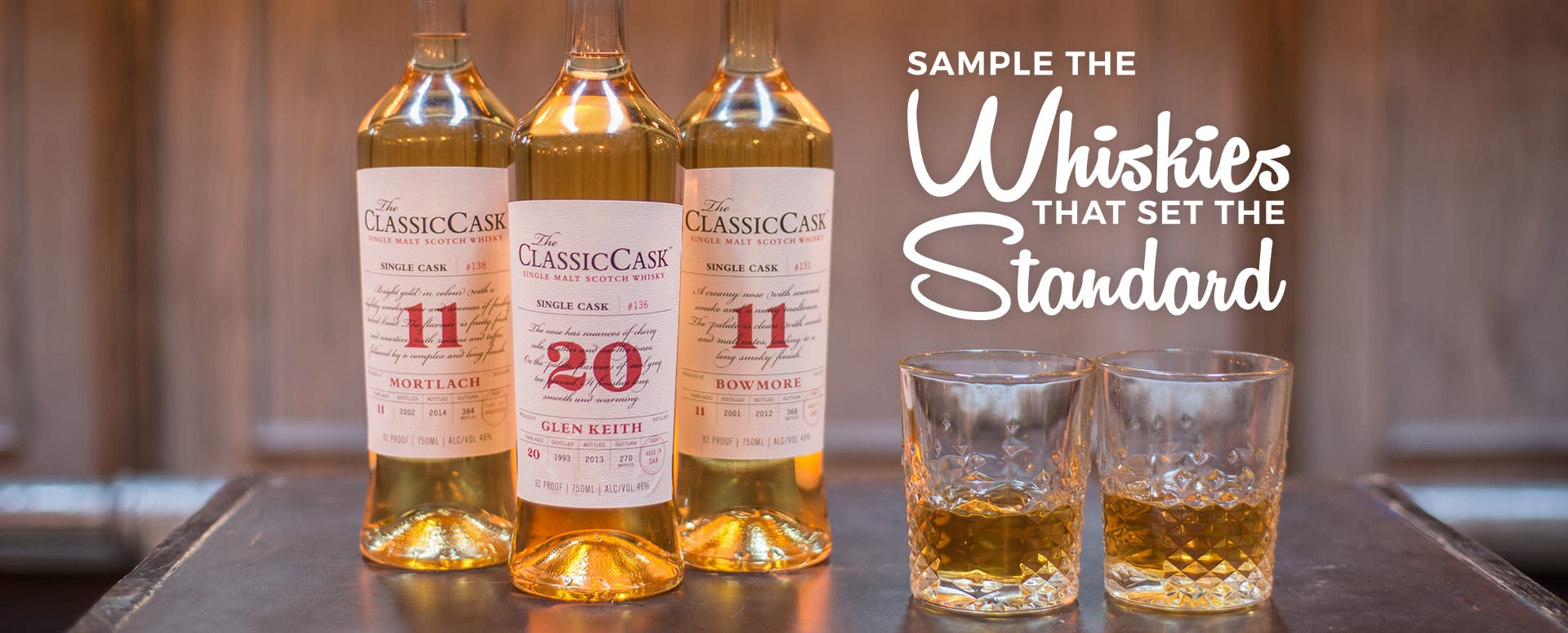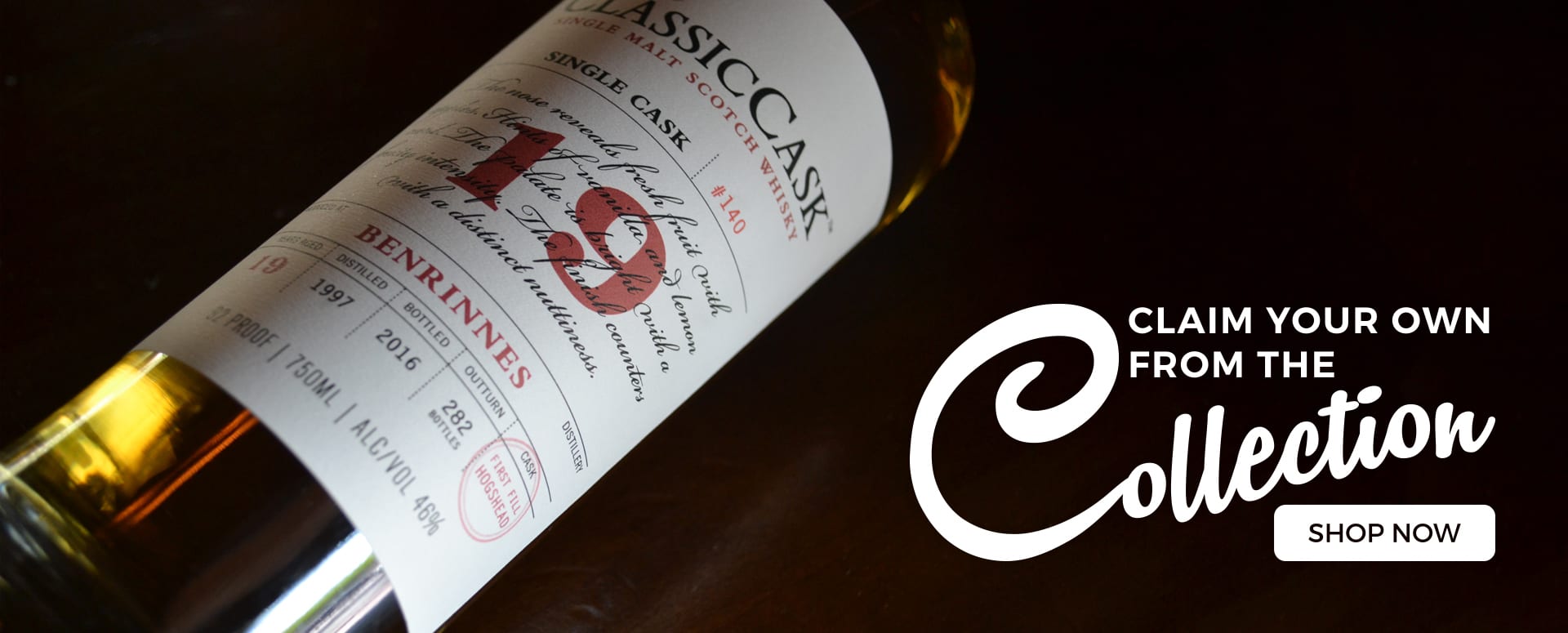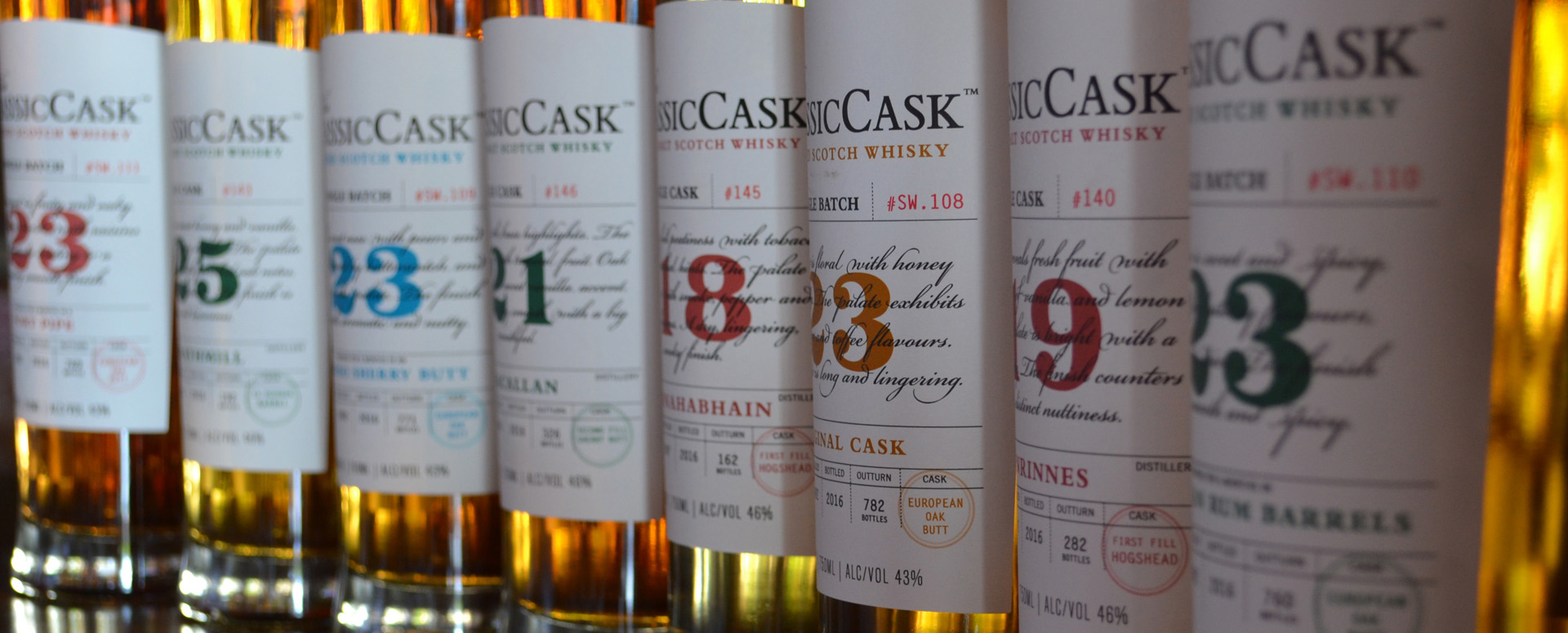
Premium whiskies bearing The Classic Cask label are amongst the most rare and unique spirits ever to be offered to the discerning enthusiast. Their unparalleled quality, richness, intensity of flavor, and remarkable smoothness are testament to the slow and painstaking processes, which were employed in their production. The Classic Cask single cask production is just that: never more than 700 bottles to a barrel. Each bottle is numbered, its label indicating the total production output, as well as distillation and bottling dates.
THE MAKING OF SINGLE MALT WHISKY

The finest barley is cultivated to maximize quality and consistency.
The barley is first steeped in water and then spread out on malting floors to germinate. The barley must be turned over regularly to prevent the buildup of heat. After the barley grain has opened, the germination process is interrupted by spreading the still wet barley on grids in the kiln and drying it with hot air from below.
The dried malt is ground into a coarse flour or grist, which is mixed with hot water in the mash tun. This is run through three passes of hot water, helping to convert the starches into sugar. After mashing, the sweet sugary liquid is known as wort.
The wort is cooled and placed into washbacks where fermentation begins. Yeast is added and the mixture is allowed time to ferment the sugars into alcohol. After about 2 days, the fermentation dies down and creates the wash, which contains 6-8% alcohol by volume.
The wash is heated enough to boil off the alcohol, creating a vapor, which is collected and cooled back to liquid. This is the essence of our single malt. This process is repeated (sometimes as many as three times) to further purify and refine the wash into spirit.
The newly distilled, colorless, fiery spirit is filled into oak casks which may have previously contained Scotch whisky, bourbon or sherry, and the maturation process begins.
Once the cask has matured to perfection, the whisky is then set out for bottling.








